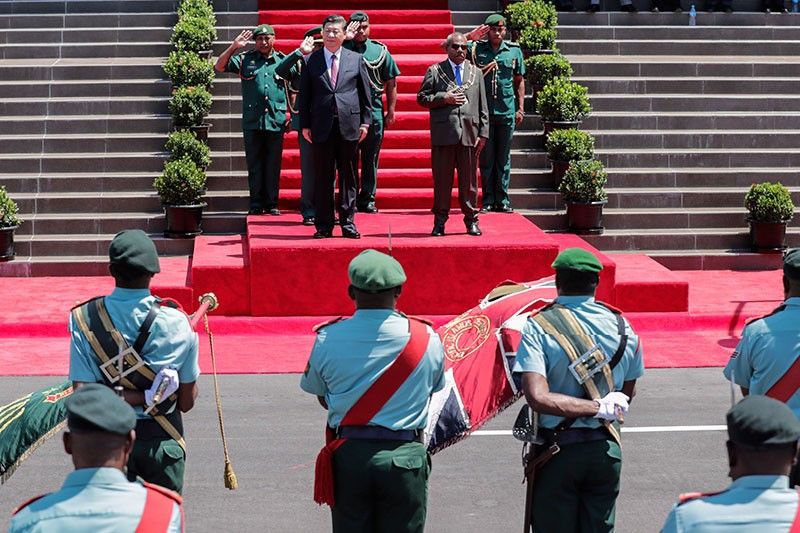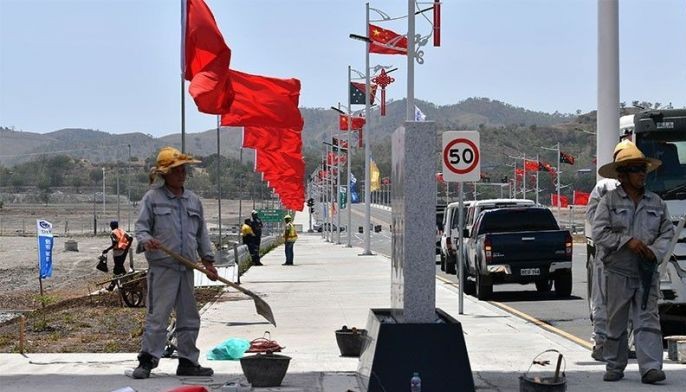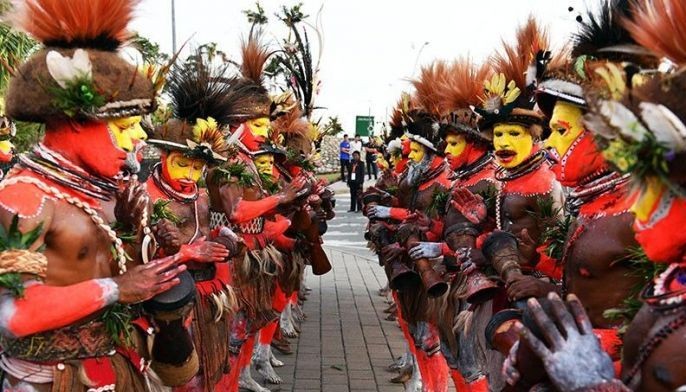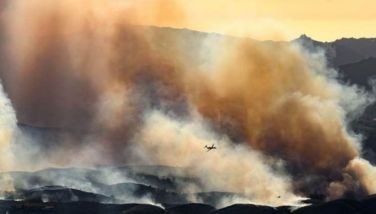US, China rivalry to dominate APEC summit

PORT MORESBY, Papua New Guinea — Asian Pacific leaders fly into the unlikely venue of Port Moresby Saturday for a summit developing into a tug-of-war for regional influence between an assertive China and an increasingly withdrawn United States.
Donald Trump is skipping the two-day APEC meeting, sending Vice President Mike Pence in his place, who is leaving after one day and staying in Australia rather than the dusty and notoriously crime-ridden Papua New Guinea capital.
The contrast with China could hardly be more stark. President Xi Jinping arrived two days before the summit for a state visit, and will open a road and school -- both funded by Beijing.
Papua New Guinea has rolled out the red carpet for its visitor with Chinese flags fluttering down the length of the new road and images of the Chinese leader beaming down from massive billboards around Port Moresby.
In an opinion piece published ahead of the visit, Xi vowed to "lend fresh impetus to our common development" and "expand practical co-operation with Pacific Island countries in trade and investment."
Ben Rhodes, former president Barack Obama's top foreign policy advisor, said Trump's absence had "opened up an enormous opportunity for China to expand its influence."
Beijing has a "historic opportunity to make inroads across the region during Trump's presidency," Rhodes told AFP.
Setting the scene for a potential clash in Port Moresby, a senior US official speaking ahead of the summit accused Beijing in engaging in "dangerous debt diplomacy throughout the region."
Several countries in the Asian Pacific region have accepted loans from Beijing for infrastructure financing that are "not transparent," added this official, who declined to be named.
The high-profile trade war between the world's two largest economies -- as well as tit-for-tat tariff measures -- will also serve as a backdrop to what could be a tense gathering.
Last-minute wrangling over WTO reform was understood to have delayed efforts to put together a joint foreign ministers' statement, laying bare the divisions between the main players.
"We are living in difficult times with rising trade tensions, rising protectionism and that needless to say is reflected in the discussion we're having here in Port Moresby," Donald Campbell, co-chairman of the Pacific Economic Co-operation Council think tank told AFP.
"It's going to be very difficult to get a ministerial statement for leaders that has consensus in it as a result of that."
- 'Raskols' -
The official agenda for the talks resolves around greater economic integration for the region and improving digital infrastructure.
But the hosting of the summit in Port Moresby, ranked as one of the world's least liveable cities -- has gathered as much attention as the topics under discussion.
Violence and petty crime is rife -- including frequent carjackings by street gangs known as "raskols" -- and delegates have been advised against travelling around the city, especially after dark.
For safety and to avoid building new hotels that will later lie empty, officials and journalists are staying on three gleaming white cruise ships moored in Port Moresby harbour, with round-the-clock security.
Indeed, security throughout the city is tight, with Australia deploying 1,500 military personnel including special forces, F/A-18 Super Hornet fighters patrolling the skies and warships stationed a stone's throw away from the cruise ships.
And the run-up to the summit became embroiled in scandal when it emerged the Papua New Guinea government had bought 40 Maseratis to ferry leaders around.
Prime Minister Peter O'Neill came under fire after splurging $6.4 million on the fleet of luxury cars when half the population of Port Moresby live in squatter settlements.
O'Neill bristled when asked about this ahead of the summit, snapping at journalists: "Did you ask the same question in Vietnam when they had the 400 plus Audis?"
"I think it is just an overrated discussion. I'm not going to give it the credibility or credit it deserves," he said.
"This is an opportunity for business leaders to see what Papua New Guinea's potential is."
But while ordinary residents may benefit from the shiny new Chinese-funding roads, there was some doubt on the streets over how the average citizen would gain from the APEC circus.
"Will APEC make us rich like other nations?" asked Harriette Jack, 68. "Comparing to other nations, we are not close."
- Latest
- Trending
































